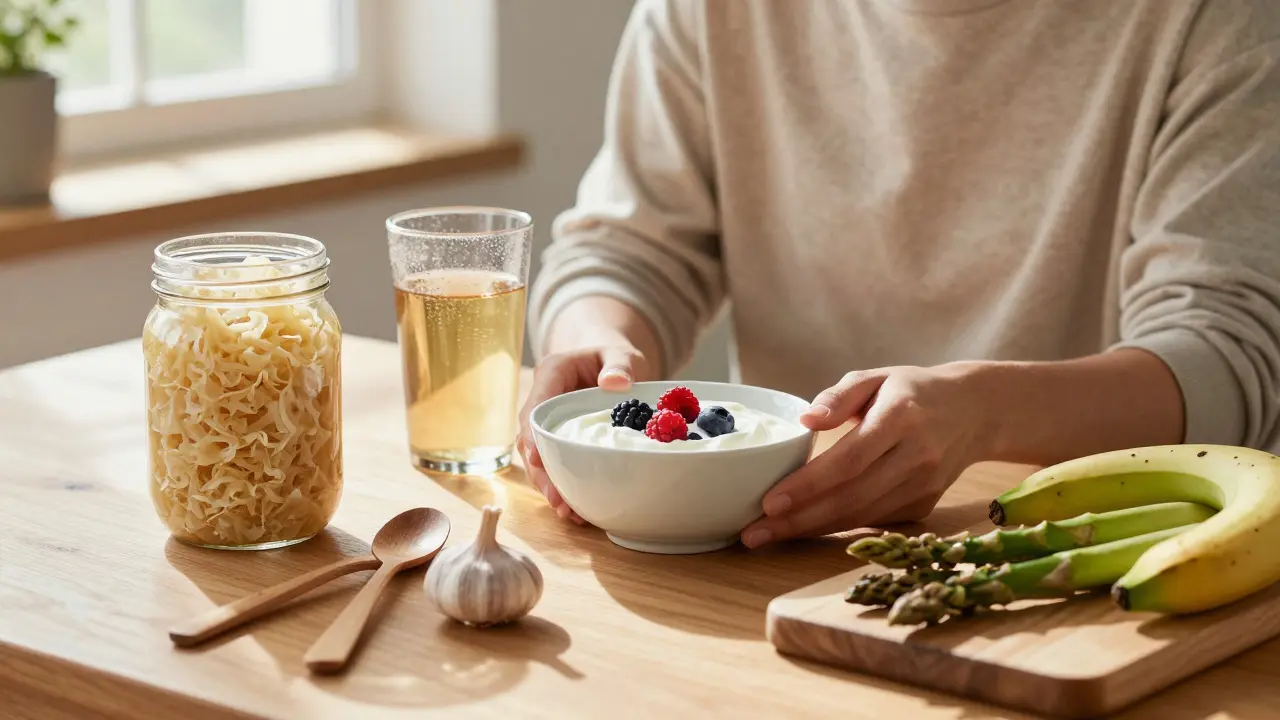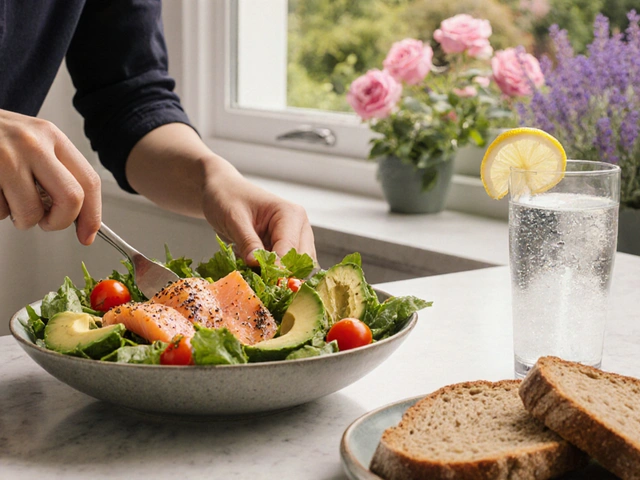Microbiome basics: why gut microbes matter for you and your dog
Think of the microbiome as a busy neighborhood of microbes living in the gut. They help digest food, support the immune system, and even influence mood. Small changes in diet, stress, or routine can shift this neighborhood fast — for better or worse. You don’t need lab tests to start helping your gut today. Start with clear, small steps that fit daily life.
Quick wins for your dog's gut
Feed consistent, high-quality food. Sudden diet swaps can upset a dog's microbiome; switch over 7–10 days, mixing increasing amounts of the new food. Add fiber-rich vegetables dogs tolerate well: plain pumpkin, cooked sweet potato, and green beans. These act as prebiotics — fuel for good bacteria.
Use dog-formulated probiotics when needed. Look for products labeled for canines; common helpful strains include canine-specific Lactobacillus and Enterococcus. Give them after vet approval, especially after a round of antibiotics. A pro tip: start with a small dose and watch stool consistency and energy as simple signs of improvement.
Limit treats high in sugar and filler. Excessive simple carbs can feed unwanted microbes and cause bloating or loose stool. Pick whole-food treats or plain protein bites and keep portions small.
Habits that help both of you
Eat a varied, fiber-first plate. For people, aim for legumes, whole grains, vegetables, and a few fermented foods like plain yogurt or kefir. These provide diverse fibers and live cultures that support a richer microbiome. If you share some human food with your dog, keep it dog-safe and vet-approved — some fermented products are fine in tiny amounts, others are not.
Move more and stress less. Regular walks and play help digestion and microbial balance in dogs and humans. Massage — gentle belly rubs for dogs and abdominal massage for people — can ease digestion. Better sleep and simple relaxation tools lower stress hormones that harm gut microbes.
Avoid unnecessary antibiotics. They save lives but also wipe out friendly bacteria. If antibiotics are needed, ask your vet or doctor about follow-up probiotic strategies to restore balance.
Watch simple signs: energy, stool firmness, coat shine, and appetite. Those often change before lab results do. If you see persistent diarrhea, blood, weight loss, or intense behavior shifts, get a vet or doctor involved. Microbiome support works best as part of routine care, not as a quick fix.
Ready to start? Pick one thing: add a fiber-rich veggie to your dog’s meal, try a vet-approved probiotic, or swap one processed snack for a whole-food option. Small, steady steps build a healthier gut neighborhood for both of you.

How to Restore Your Gut Health After Antibiotics
Learn how to restore your gut health after antibiotics with proven steps: eat fermented foods, take the right probiotics, cut sugar, and support your microbiome with prebiotics and lifestyle changes.

Why Gut Health is Crucial for Weight Management
Your gut bacteria play a key role in hunger, fat storage, and metabolism. Learn how improving gut health can help you lose weight naturally-without extreme diets.

Gut Health and Its Impact on Your Metabolism
Unraveling the connection between gut health and metabolism, this article delves into how the tiny organisms in our digestive system can influence weight, energy levels, and overall wellness. It explores the role of the gut microbiome, offering insights into how diet and lifestyle can improve metabolic health. Readers will find practical tips to nurture a balanced gut that supports a more efficient metabolism. Understanding the delicate interplay between the gut and metabolism opens doors to healthier living.

Harnessing Probiotics for Optimal Digestive Health: Key Benefits and Implementations
Probiotics have become a focal point in discussions about digestive health and overall wellness. They are commonly known as 'good' bacteria that offer various health benefits, especially for the gastrointestinal tract. This article examines the crucial role of probiotics in maintaining and enhancing gut health, and how incorporating them into your diet can lead to improved digestion, enhanced immune function, and even mental wellness. Insights into the symbiotic relationship between probiotics and our body, as well as practical tips for harnessing their potential, are shared to guide readers towards a healthier gut flora.

Biofeedback: The Future of Heart Health Starts Here
Jun, 13 2025

Healthy Diet Essentials for a Vibrant Life
Sep, 26 2025


